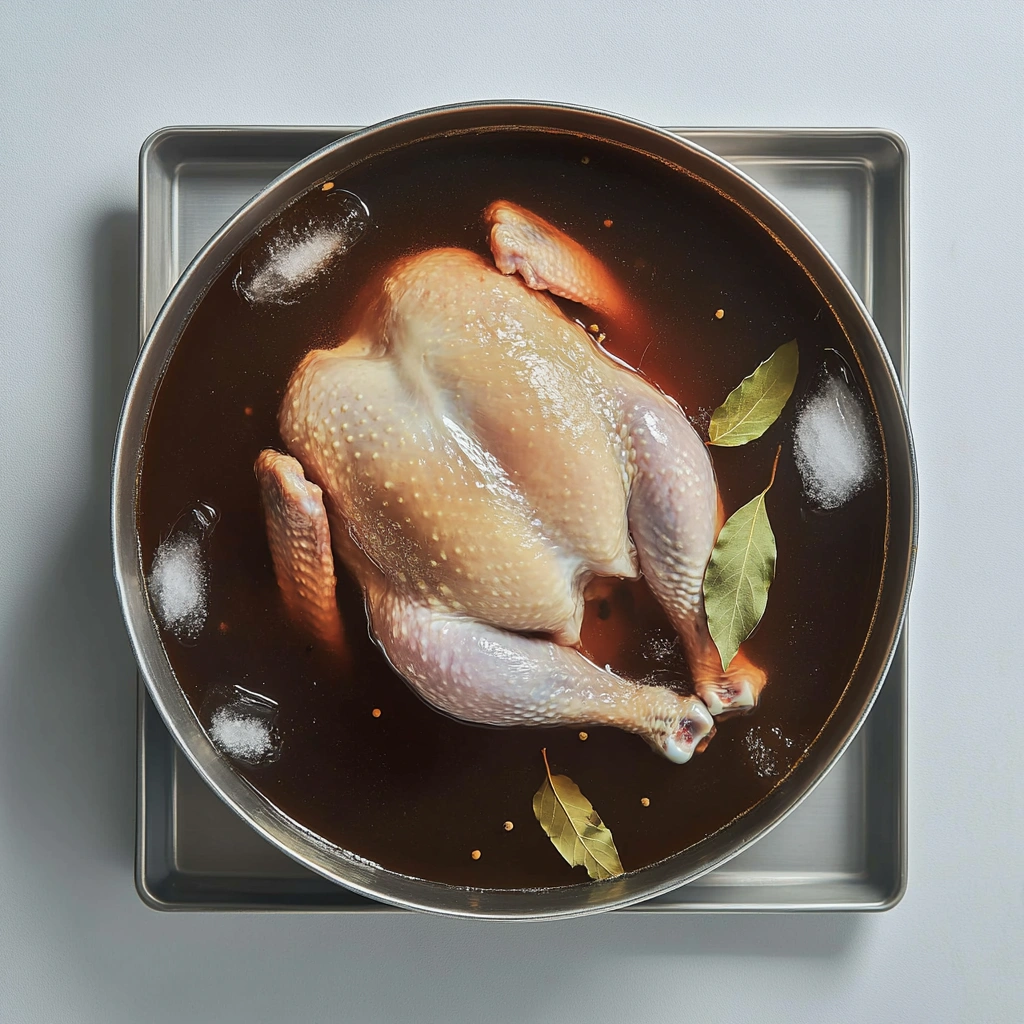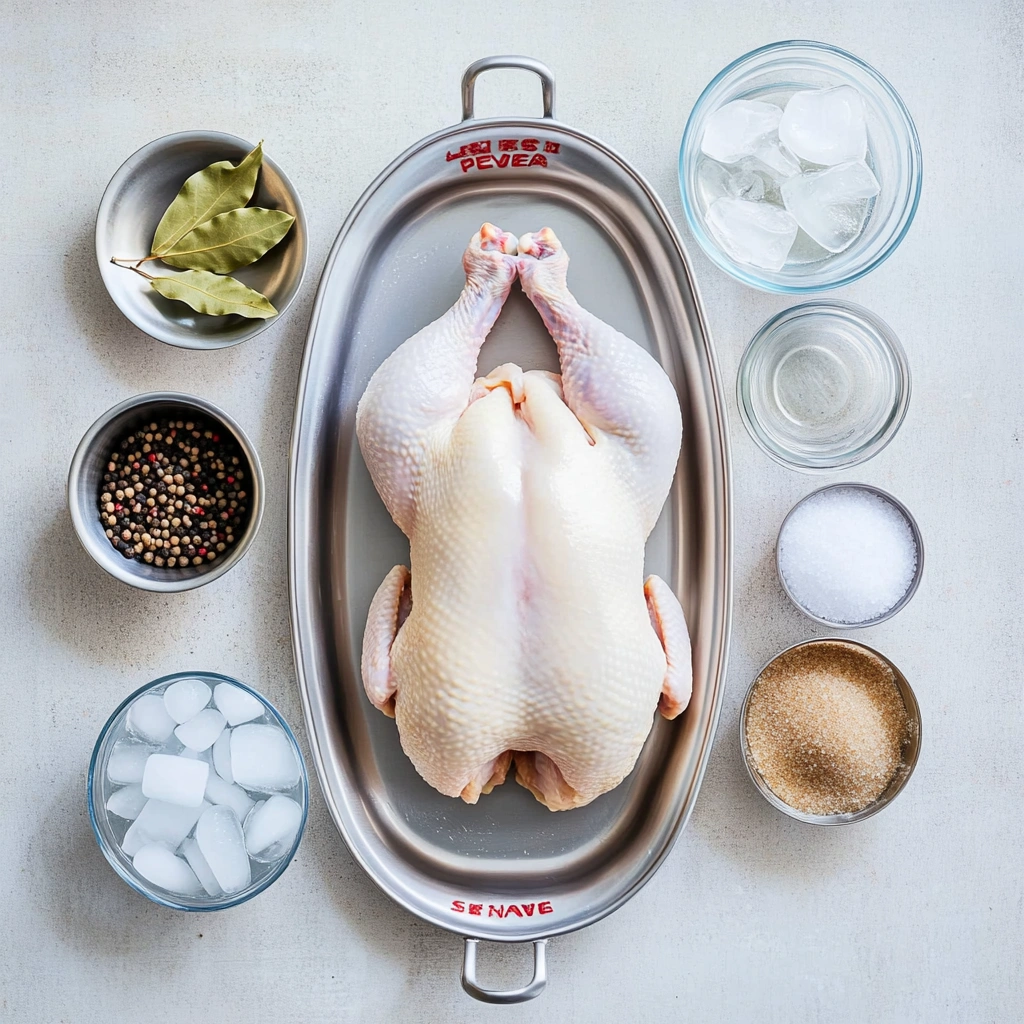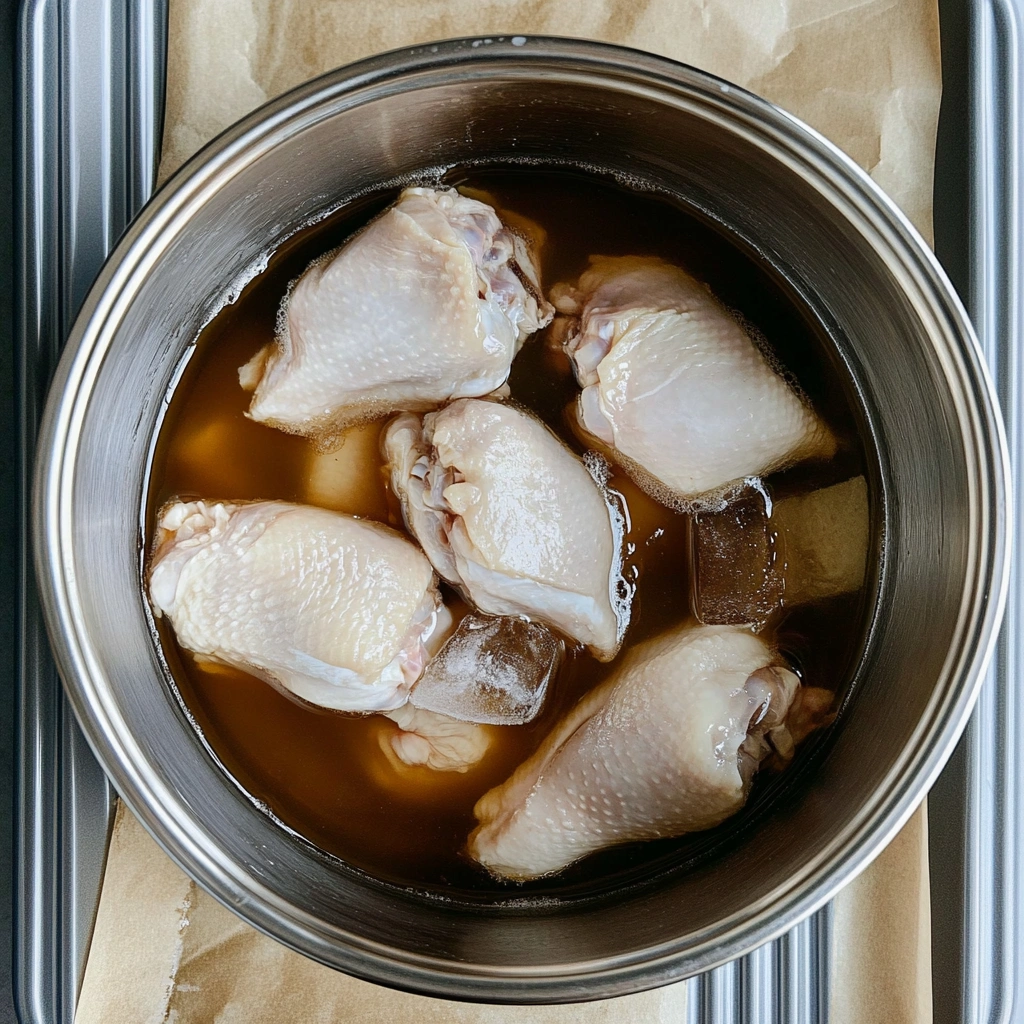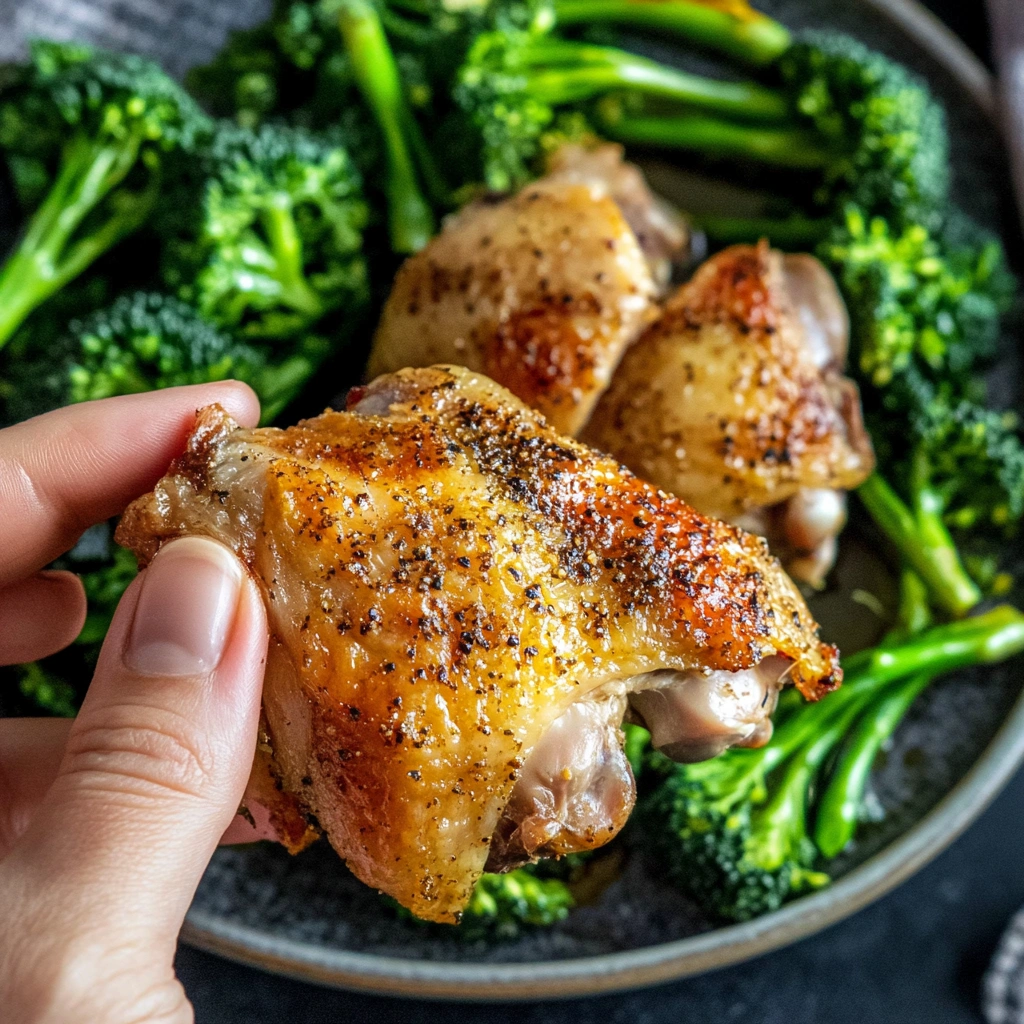Should I brine chicken before smoking? The short answer: Yes! Brining is the key to juicy, flavorful smoked chicken. It helps lock in moisture, prevents the meat from drying out, and infuses every bite with delicious seasoning. Whether you’re smoking a whole chicken, breasts, or thighs, brining makes a noticeable difference in taste and texture.
If you’re ready to put your brined chicken to the test, check out this Smoked Chicken Breast Recipe for a step-by-step guide. It’s a great way to try out your brining skills and enjoy tender, smoky chicken that’s packed with flavor!
Why Brine Chicken Before Smoking?
Let’s get straight to it: brining works magic. It’s like giving your chicken a spa day before the smoke hits. Brining involves soaking the chicken in a salty solution, sometimes with extra goodies like sugar, herbs, or spices. This not only locks in moisture but also seasons the meat from the inside out.
Smoking is a slow process, and during that time, chicken can lose a lot of moisture. Nobody wants a dry bird, right? Brining acts like a moisture shield. It makes sure your chicken stays juicy and tender—even if you, um, let it hang out in the smoker a little too long.

The Science Behind Brining (It’s Cool, I Promise)
Here’s the deal: when you soak chicken in a brine, the salt does this nifty trick where it breaks down muscle fibers. This helps the chicken hold onto water like a sponge. That means when the heat of the smoker starts pulling moisture out, there’s still plenty left to keep the meat juicy.
Plus, if you toss in some extra flavors like garlic, rosemary, or even a little lemon zest, they’ll soak right into the meat, giving you layers of flavor you just can’t get from a dry rub alone.
How to Brine Chicken for Smoking
Alright, let’s talk technique. Brining isn’t complicated, but there are a few key steps to follow to get the best results:

1. Pick Your Brine Type
- Wet Brine: This is the classic option—water, salt, sugar, and whatever flavors you want to add. A basic ratio is 1 gallon of water to 1 cup of kosher salt and ½ cup of sugar.
- Dry Brine: No water here, just a salt-based rub. The salt draws out moisture, mixes with it on the chicken’s surface, and gets reabsorbed, working its magic.
2. Get the Right Container
For a wet brine, you’ll need a large enough container to submerge your chicken completely. A big mixing bowl, a brining bag, or even a clean bucket (for larger birds) works. Just make sure it’s food-safe.

3. Brining Time
- Whole Chicken: 8–12 hours
- Chicken Breasts: 1–2 hours
- Chicken Thighs/Drumsticks: 2–4 hours
Don’t go overboard, though—too much brining can make your chicken overly salty and mess with the texture.
Smoking Brined vs. Unbrined Chicken
Here’s the million-dollar question: is brining chicken really worth it? Let’s look at the difference.
Brined Chicken
- Texture: Juicy and tender, even after hours in the smoker.
- Flavor: Infused with seasoning all the way through, not just on the surface.
- Moisture: Holds up even if it spends a little extra time in the smoker.
Unbrined Chicken
- Texture: Can turn dry, especially the breasts.
- Flavor: Mostly surface-level, relying on rubs and sauces.
- Moisture: More likely to lose it during smoking.
The verdict? Brining wins—hands down.
Tips for Smoking Brined Chicken
Here are a few tricks to help you get the most out of your brined chicken:
- Rinse and Dry: After brining, rinse the chicken with cold water to remove excess salt, then pat it dry with paper towels.
- Add a Rub: Don’t skip this step! A dry rub adds an extra punch of flavor and helps create that smoky, crispy skin.
- Cook to Temp, Not Time: Use a meat thermometer to check for doneness. Chicken is safe to eat at 165°F, but the dark meat (thighs and drumsticks) tastes best around 175°F.
- Rest Before Serving: Let the chicken rest for 10–15 minutes after smoking to lock in the juices.
Should I Brine Chicken Before Smoking If I’m Using a Marinade?
Many people wonder if brining is still necessary when using a marinade. The short answer? Yes, brining and marinating serve different purposes. A brine primarily enhances moisture retention by breaking down muscle fibers and allowing the chicken to hold onto more water. In contrast, a marinade focuses on surface-level flavoring with acidic ingredients like vinegar or citrus.
If you want the best of both worlds, consider a quick brine followed by a marinade. Brine your chicken for a few hours, rinse and pat it dry, then apply a marinade for an extra punch of flavor. Just be mindful of the salt content—since brining already seasons the chicken, reduce the salt in your marinade to avoid overpowering the taste.
Can You Brine and Dry Rub Chicken Before Smoking?
Absolutely! Brining and using a dry rub together can create the ultimate smoked chicken. After brining, rinse the chicken thoroughly, pat it dry, and let it sit uncovered in the fridge for an hour. This helps the skin dry out, ensuring it crisps up beautifully in the smoker.
Once dried, apply your favorite dry rub for an extra boost of seasoning. The brine works from the inside out, while the dry rub forms a flavorful crust on the surface. For best results, use a low-sodium rub to avoid excess saltiness.
Does Brining Affect Smoke Absorption?
One common concern is whether brining impacts how well the chicken absorbs smoke. The good news? Brined chicken still takes on plenty of smoky flavor. Because brining increases moisture content, the smoke adheres well to the surface and penetrates deeper into the meat.
To maximize that smoky taste, opt for wood chips that complement your seasoning. Applewood, hickory, and cherry wood are excellent choices that enhance the flavors developed during brining.
Should I Brine Chicken Before Smoking If I’m Short on Time?
If you’re in a hurry, you might wonder if skipping the brine is okay. While brining is highly recommended, there are faster alternatives to keep your chicken juicy:
- Dry brine – Instead of soaking in liquid, rub the chicken with salt and let it sit for an hour before smoking. This speeds up the process while still helping with moisture retention.
- Injecting brine – A meat injector lets you infuse brine directly into the chicken in minutes instead of hours. This method works great for whole chickens.
- Short brine soak – Even 30 minutes to 1 hour in a brine solution can make a difference, especially for smaller cuts like chicken breasts or thighs.
If you have zero time for brining, consider using a higher smoking temperature (around 275–300°F) to retain more natural juices.
FAQs
1. Should I Brine Chicken Before Smoking If I’m Using a Dry Rub?
Yes! Brining and dry rubs work together to enhance flavor and moisture. Brining seasons the chicken from the inside out, while a dry rub adds a flavorful crust to the surface. Just be sure to rinse and pat dry the chicken after brining before applying the rub to prevent it from being overly salty.
2. Can I Brine Chicken Overnight Before Smoking?
Yes, but it depends on the cut of chicken. Whole chickens can handle 8–12 hours in a brine, while smaller cuts (like breasts or thighs) should only be brined for 1–4 hours to avoid becoming too salty. If brining overnight, consider using a slightly lower salt concentration.
3. What Happens If I Brine Chicken Too Long?
Over-brining can lead to mushy texture and excessive saltiness. The salt continues breaking down proteins, and too much time in the brine can make the meat overly soft. Stick to the recommended brining times:
- Whole Chicken: 8–12 hours
- Chicken Breasts: 1–2 hours
- Chicken Thighs/Drumsticks: 2–4 hours
4. Should I Brine Chicken Before Smoking If I’m Using a Smoker with Water Pan?
Yes! Even though a water pan adds moisture to the smoking environment, brining works differently by helping the chicken retain internal juices. The water pan prevents the exterior from drying out too quickly, while the brine ensures the meat stays tender from the inside.
5. Can I Use a Dry Brine Instead of a Wet Brine?
Absolutely! A dry brine (coating the chicken with salt and letting it rest) is a great alternative if you don’t have time for a full wet brine. It helps retain moisture, enhances flavor, and is quicker—just rub the chicken with kosher salt and let it sit for at least an hour before smoking.
Conclusion
Brining chicken before smoking isn’t just a step—it’s the secret to creating the juiciest, most flavorful smoked chicken you’ll ever taste. Whether you’re tackling a whole bird or just some wings, taking the time to brine helps your chicken stay moist, tender, and seasoned all the way through.
Sure, you can smoke chicken without brining, but the difference is night and day. Brining gives your chicken that professional-level flavor and texture that makes it stand out from the rest. Plus, it’s easy to do and doesn’t require fancy ingredients—just salt, water, and a little planning ahead.

